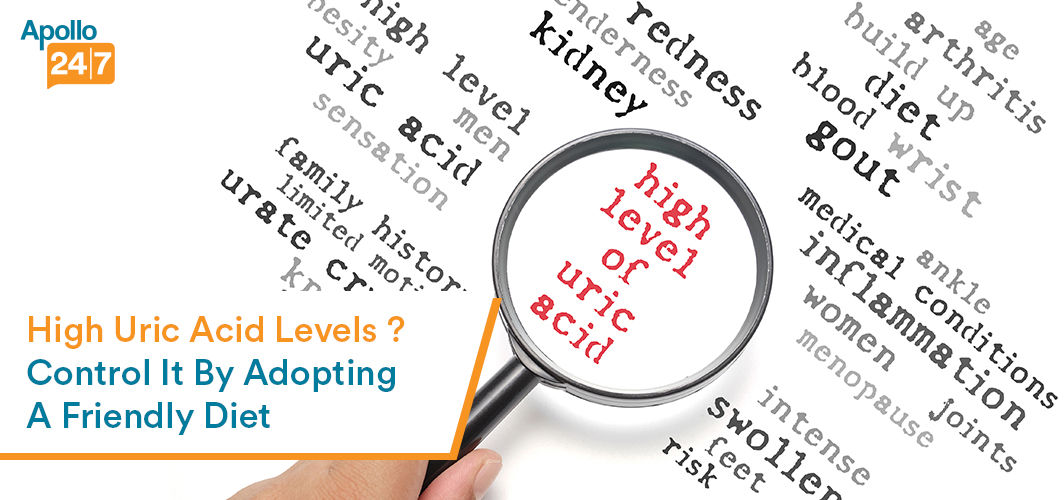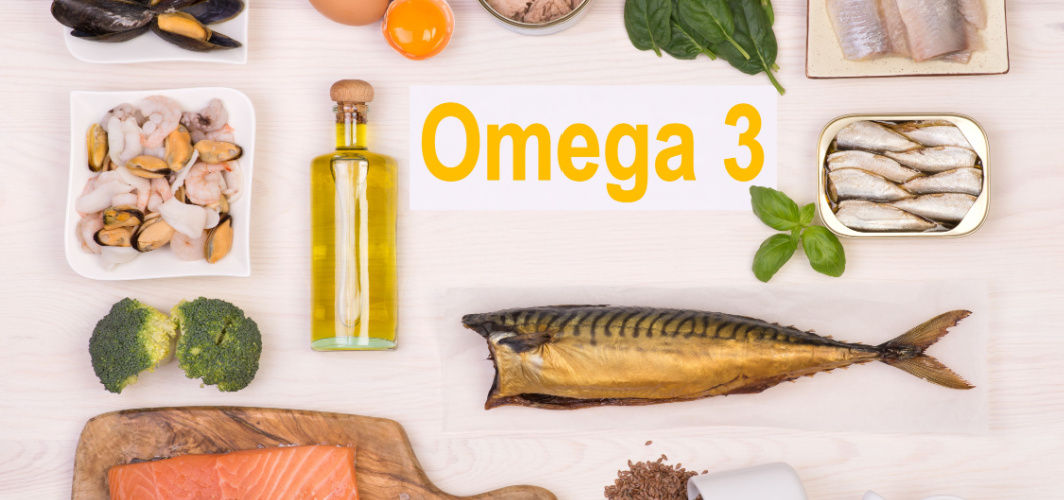General Health
High Uric Acid Levels? Control It By Adopting A Friendly Diet
3 min read
By Apollo 24|7, Published on - 20 July 2022, Updated on - 14 February 2023
Share this article
0
26 likes

Do you have high levels of uric acid? Then you must be cautious as it can lead to gout, a painful bone disorder that mainly affects the joints. High levels of uric acid indicate the kidney's inefficiency to eliminate it from the body. However, there are some foods that may help you control uric levels in your body.
What are the foods to eat to avoid uric acid accumulation?
A low purine diet is often recommended for people with hyperuricemia (high levels of uric acid) because the uric acid can form crystals and lead to gout and kidney stones. Certain foods that may help reduce uric acid levels are:
Citrus fruits
Citrus fruits such as lemon, oranges, papaya, and pineapple, are rich in vitamin C, therefore, they help lower high levels of uric acid naturally. Most studies suggest that taking 500 milligrams (mg) of vitamin C per day can help people deal with gout pain.
Low-fat dairy products
Low-dairy food products such as yoghurt, low-fat milk, and cheese can provide optimal calcium and protein to the body, which, in turn, helps in reducing uric acid levels.
Beans
Pinto beans are known to be the best source of plant-based proteins that can help keep gout attacks at bay. Red beans and pinto beans contain exceptionally low proteins, which are safe for gout patients to consume.
Foods with omega-3 fatty acids
Taking omega 3 fatty acid supplements or foods rich in omega 3 such as salmon, mackerel, and eggs is associated with lowering the levels of uric acid in the body. Additionally, it also helps in reducing inflammation and reduces the incidences of gout attacks.
Foods rich in fibre
Whole grains such as oats, and vegetables like pumpkin, broccoli, and celery are excellent sources of fibre which not only help ease constipation but also naturally lower serum uric acid levels. It also prevents gout flare-ups.
Green tea
Research suggests green tea extracts contain polyphenols that can help reduce high uric acid levels significantly.
Apple cider vinegar (ACV)
ACV has been used as a preservative and an antimicrobial for many years. However, studies suggest consuming apple cider vinegar can be beneficial for people with arthritis and gout as it keeps obesity and uric acid levels in limit.
Cherries & berries
A crossover study suggested that cherry extracts reduced gout episodes by up to 35% in two days. In addition, cherries, strawberries, and blueberries are good sources of antioxidants, thus they help in reducing inflammations and aid in the management of gouts and other arthritic conditions.
What are the foods to avoid?
Gout attacks and flare-ups can be extremely painful. Therefore, it is best to avoid certain foods that can aggravate gout and other arthritic conditions. Foods that should be avoided are:
Foods rich in purine
Red meats and sea foods contain a high amount of purine which can break down into crystals, aggravating gout and other arthritic conditions.
Foods high in sugars
Foods rich in sucrose and corn syrups should be avoided as they can worsen diabetes, and obesity, and result in gout flare-ups.
Alcohol
While alcoholic beverages may not contain purines, they can increase purine production in the body, leading to higher uric acid levels. Hence, men should not consume more than two drinks per day, while women should limit it to one drink per day to avoid the risk of gout attacks.
Conclusion
High levels of uric acid can be controlled naturally by keeping a check on certain foods. Consuming low-fat dairy products, citrus fruits, and foods rich in omega-3 fatty acids can help you manage gout pain. However, if your gout episodes become frequent and flare up, consult with an orthopaedic doctor from the comfort of your home.
Consult with the best orthopaedician today!
- Authored by Dr. Tulika Roy
General Health
Leave Comment
Recommended for you

General Health
Using Earbuds To Clean Your Ears? Know How It Can Damage Your Ears
Using earbuds to clean your ears is not recommended because it can push earwax further into the ear canal, disrupt the natural cleaning mechanism of the ears, and lead to earwax blockage. Read on to know how to maintain proper ear hygiene.

General Health
Does Chronic Fatigue Syndrome Cause Persistent Tiredness?
Chronic fatigue syndrome (CFS), also known as myalgic encephalomyelitis (ME), is a long-term illness characterized by extreme tiredness.

General Health
Is Fish Oil Safe for Older Adults and Children?
Explore the safety of fish oil for older adults and children. Get expert insights to make informed decisions about its use.
Subscribe
Sign up for our free Health Library Daily Newsletter
Get doctor-approved health tips, news, and more.
Visual Stories

The Best Exercises for Controlling Blood Sugar Levels
Tap to continue exploring
Recommended for you

General Health
Using Earbuds To Clean Your Ears? Know How It Can Damage Your Ears
Using earbuds to clean your ears is not recommended because it can push earwax further into the ear canal, disrupt the natural cleaning mechanism of the ears, and lead to earwax blockage. Read on to know how to maintain proper ear hygiene.

General Health
Does Chronic Fatigue Syndrome Cause Persistent Tiredness?
Chronic fatigue syndrome (CFS), also known as myalgic encephalomyelitis (ME), is a long-term illness characterized by extreme tiredness.

General Health
Is Fish Oil Safe for Older Adults and Children?
Explore the safety of fish oil for older adults and children. Get expert insights to make informed decisions about its use.